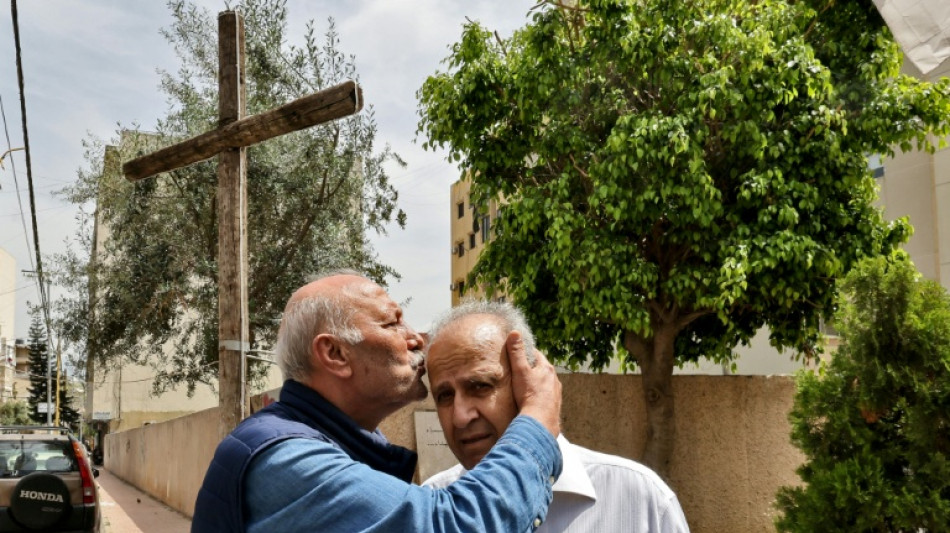
-
 SFWJ / Medcana Announces Strategic Expansion Into Australia With Acquisition of Cannabis Import and Distribution Licenses
SFWJ / Medcana Announces Strategic Expansion Into Australia With Acquisition of Cannabis Import and Distribution Licenses
-
Tokyo leads gains in most Asian markets on trade deal hopes

-
 Two missing after deadly spring snowstorm wreaks havoc in the Alps
Two missing after deadly spring snowstorm wreaks havoc in the Alps
-
'War has taken everything': AFP reporter returns home to Khartoum

-
 US strikes on Yemen fuel port kill 38, Huthis say
US strikes on Yemen fuel port kill 38, Huthis say
-
Slegers targets Lyon scalp in pursuit of Arsenal European glory

-
 'Defend ourselves': Refugee girls in Kenya find strength in taekwondo
'Defend ourselves': Refugee girls in Kenya find strength in taekwondo
-
China's manufacturing backbone feels Trump trade war pinch

-
 Sri Lankans throng to Kandy for rare display of Buddhist relic
Sri Lankans throng to Kandy for rare display of Buddhist relic
-
Chinese vent anger at Trump's trade war with memes, mockery

-
 Heartbroken Brits abandon pets as living costs bite
Heartbroken Brits abandon pets as living costs bite
-
Mongolian LGBTQ youth fight for recognition through music, comedy

-
 Cash crunch leaves Syrians queueing for hours to collect salaries
Cash crunch leaves Syrians queueing for hours to collect salaries
-
Lyon left to regroup for Champions League bid after painful European exit

-
 Unravelling Real Madrid face Athletic Bilbao Liga test
Unravelling Real Madrid face Athletic Bilbao Liga test
-
Napoli disturbing buoyant Inter's peace in Serie A Easter bonanza

-
 Disappointed Dortmund chase consistency with Europe at stake
Disappointed Dortmund chase consistency with Europe at stake
-
Asian markets mixed as traders track tariff talks

-
 Yan and Buhai share lead at LA Championship
Yan and Buhai share lead at LA Championship
-
Under fire at debate, Canada PM Carney tries to focus on Trump

-
 Liverpool poised for Premier League coronation, Leicester, Ipswich for relegation
Liverpool poised for Premier League coronation, Leicester, Ipswich for relegation
-
India's elephant warning system tackles deadly conflict

-
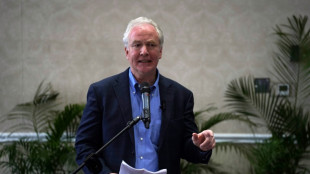 US senator meets wrongfully deported Salvadoran migrant
US senator meets wrongfully deported Salvadoran migrant
-
Gustavo Dudamel: the superstar conductor building bridges to pop
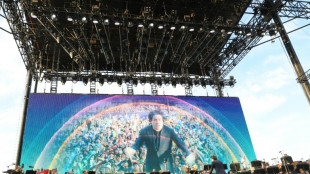
-
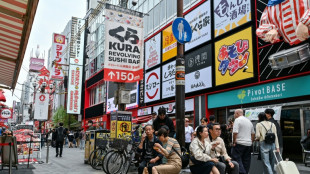 Japan rice prices soar as core inflation accelerates
Japan rice prices soar as core inflation accelerates
-
US unveils new port fees for Chinese-linked ships
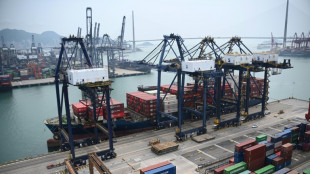
-
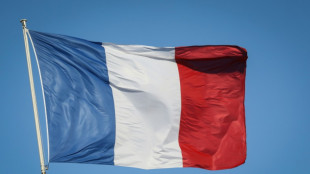 First US 'refugee scientists' to arrive in France in weeks: university
First US 'refugee scientists' to arrive in France in weeks: university
-
Members of UK Jewish group launch broadside on Gaza war
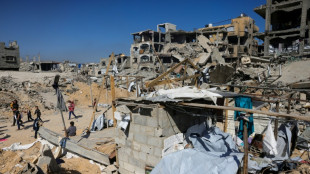
-
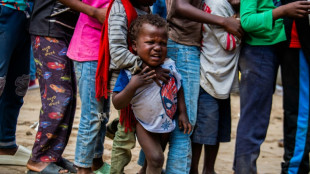 One million Haitian children face 'critical' food shortage: UN
One million Haitian children face 'critical' food shortage: UN
-
Spring snow storm wreaks deadly havoc in the Alps
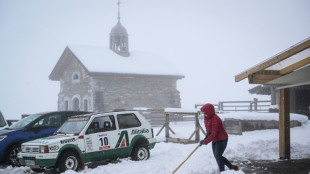
-
 Man Utd buy time to make miserable season 'special', says Amorim
Man Utd buy time to make miserable season 'special', says Amorim
-
Netflix earnings top forecasts despite economic turmoil
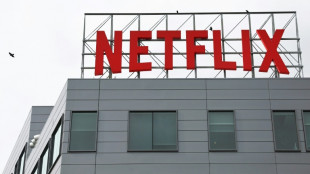
-
 Thomas three clear at RBC Heritage after sizzling 61
Thomas three clear at RBC Heritage after sizzling 61
-
Man Utd beat Lyon in Europa League epic, Spurs and Athletic Bilbao reach semis

-
 Frankfurt's Goetze sidelined with leg injury
Frankfurt's Goetze sidelined with leg injury
-
Spurs players 'never lost belief', says Postecoglou

-
 Man Utd stun Lyon in nine-goal Europa League classic to reach semis
Man Utd stun Lyon in nine-goal Europa League classic to reach semis
-
Netflix earnings in first quarter of 2025 top forecasts
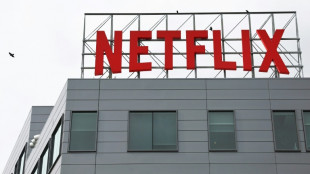
-
 Trump says US 'talking' to China on tariffs
Trump says US 'talking' to China on tariffs
-
Salvadoran soldiers stop US senator near prison holding expelled migrant
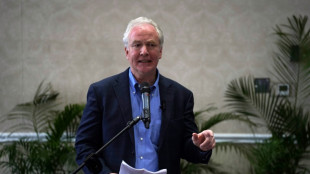
-
 Solanke penalty sends Spurs to Europa League semis
Solanke penalty sends Spurs to Europa League semis
-
CAF crackdown after trouble in African club matches

-
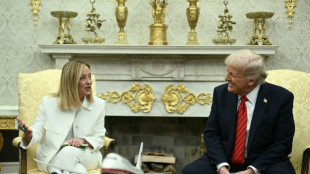 Trump talks up EU tariff deal as Italy's Meloni visits
Trump talks up EU tariff deal as Italy's Meloni visits
-
Trump insists he could fire independent Fed Chair Powell
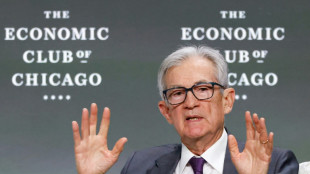
-
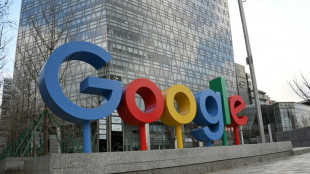 Google has illegal monopoly in ad tech, US judge rules
Google has illegal monopoly in ad tech, US judge rules
-
Trump softens on Zelensky, says mineral deal coming 'soon'
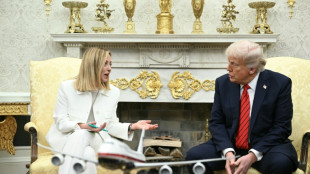
-
 Jacks helps Mumbai beat Hyderabad in IPL
Jacks helps Mumbai beat Hyderabad in IPL
-
Countries must 'make the best' of new multipolar world: IMF chief
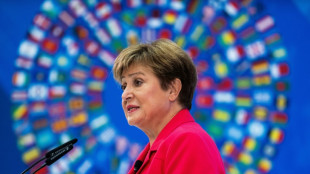
-
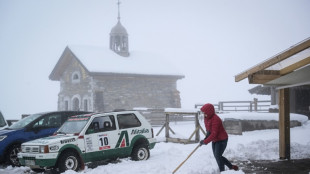 Heavy spring snow storm wreaks havoc in the Alps
Heavy spring snow storm wreaks havoc in the Alps
-
US judge rules against Google in online ad tech antitrust case
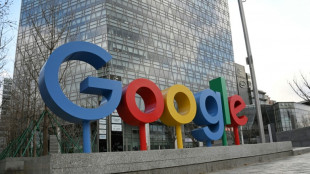

Lebanon's civil war fighters working for reconciliation, 50 years on
Near front lines where they once battled each other, former fighters in Lebanon's civil war now gather to bear the same message, half a century after the devastating conflict erupted: never again.
The war killed 150,000 people, destroyed the country and left an indelible mark on the Lebanese psyche.
Years after it ended in 1990, some buildings in the freewheeling capital remain riddled with bullet holes, and 17,000 people who went missing were never found.
"It was a useless war," said Georges Mazraani, a Christian who took up arms in Beirut's working-class neighbourhood of Ain al-Remmaneh, where the conflict started.
The Christian district is separated from the Muslim neighbourhood of Shiyah by just one street that went on to become a key front line.
On April 13, 1975, members of the right-wing Christian Phalange militia machine-gunned a bus of Palestinians, leaving 27 dead, hours after assailants opened fire outside a nearby church, killing one of theirs.
The incident that ignited the war remains seared in Lebanon's memory.
- 'Reconciliation' -
The country had been on a knife-edge, with Palestinian fighters, and their Lebanese leftist and Muslim allies preparing for a confrontation against Christian groups, who were doing the same.
For 15 years, a country once known as "the Switzerland of the Middle East" was ravaged by war along sectarian lines, with alliances shifting year after year with warlords building and breaking loyalties.
And while the civil war ended in 1990, Lebanon has never recovered its former glory, remaining until 2005 under Syrian control, and with part of the country under Israeli occupation for two decades.
Now grey, Mazraani was just 21 when he and other young men in his neighbourhood took up arms. He later went on to command hundreds of fighters.
"I lost 17 years of my life and 14 family members," he said, now 71 and ill.
Near him plaques commemorating the "martyrs" of the Christian "resistance" adorn street corners.
Today, "some people are encouraging civil war in Lebanon", Mazraani said.
"They should be quiet and open up to reconciliation, so we can be finished with this problem."
- 'Ask for forgiveness' -
With Mazraani is Nassim Assaad, who fought for the Lebanese Communist Party, a onetime foe.
"It's the poor" on both sides "who paid the price", not the militia leaders, said Assaad, who was 18 when the war began.
He and Mazraani are now part of Fighters for Peace, which brings together former enemies for peace-building activities including community outreach and awareness-raising at schools and universities.
Assaad said many people were worried about a possible return to civil war in the country still reeling from a recent conflict between Israel and Hezbollah.
"Today, the circumstances are even more conducive for it than in 1975," he said.
The key issue dividing Lebanon today is the arsenal of Hezbollah, the only group which refused to surrender its weapons to the state after the civil war ended.
In Shiyah, the fighters of old have disappeared.
Israel's 1982 invasion and siege of Beirut dislodged Palestinian leader Yasser Arafat and his fighters, while the leftist presence was replaced by Hezbollah, created with Iranian backing that year to fight the Israeli troops.
The civil war ended with the Saudi-brokered Taif agreement, which established a new power-sharing system between Lebanon's religious sects.
An amnesty for war crimes left victims and their families without justice, and the country has chosen collective amnesia in order to move on.
"We must go back over our experience of war and ask for forgiveness in order to reach a real reconciliation," said Ziad Saab, president of Fighters for Peace.
The power-sharing system was meant to be temporary, but in practice has enshrined the control of some former warlords, who swapped their military fatigues for suits, or their family members.
Still today, periodic violence shakes the fragile balance.
- 'Lessons of the past' -
In the town of Souk al-Gharb, overlooking Beirut, former fighters from different backgrounds walk through grass covering the old front line to an abandoned bunker.
The strategic town saw ferocious battles during the Mountain War between Christians and Druze that began in the wake of the Israeli invasion.
"When I walk here, I'm afraid -- not of mines, but because the ground is stained with the blood of my comrades," said Soud Bou Shebl, 60, who fought with Christian militia the Lebanese Forces.
Karam al-Aridi, 63, who led Druze fighters from the Progressive Socialist Party, said "war only causes death and problems", saying his village of Baysur alone lost 140 men.
"We must learn the lessons of the past," he said. "No party must feel stronger than another, otherwise our country will be lost."
B.Finley--AMWN